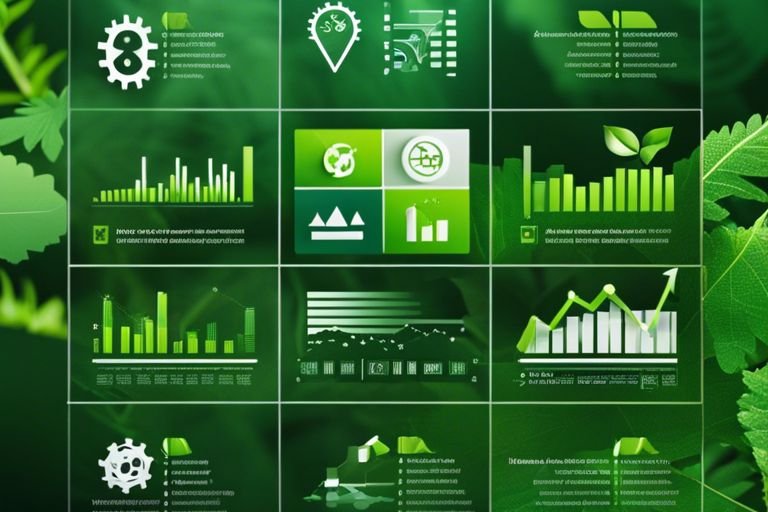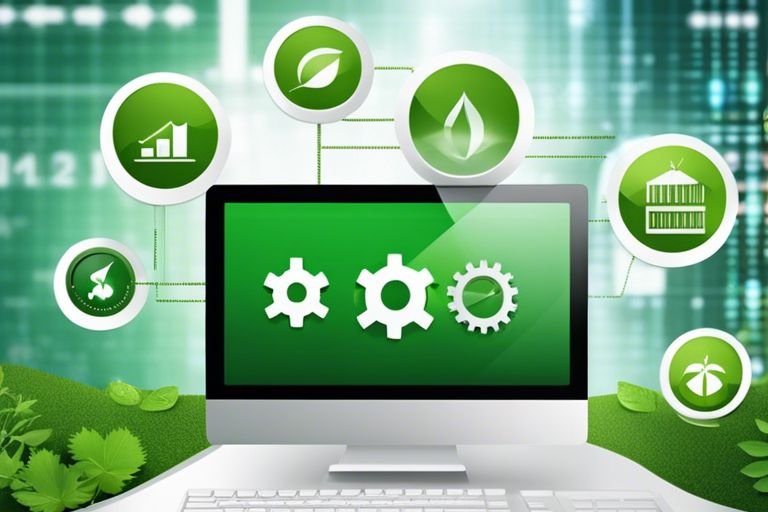How Can ERP Systems Support Sustainable Business Practices?

Amidst the growing concern for environmental sustainability and corporate social responsibility, businesses are increasingly turning to Enterprise Resource Planning (ERP) systems to support their efforts in sustainable business practices. ERP systems, with their ability to streamline and integrate various business processes and data, can play a crucial role in helping organizations minimize their environmental impact, reduce waste, and enhance their overall sustainability efforts. From supply chain management to real-time data analysis, ERP systems offer a multitude of tools and functionalities that can support businesses in their journey towards sustainability. In this blog post, we will explore the ways in which ERP systems can help businesses adopt and maintain sustainable practices, ultimately contributing to a more environmentally friendly and socially responsible business landscape.
Key Takeaways:
- Integrated Data Management: ERP systems help in centralizing and managing data, providing organizations with valuable insights into their resource usage and environmental impact.
- Efficient Resource Planning: ERP systems enable businesses to optimize their resource usage, reduce waste, and improve energy efficiency, leading to cost savings and a smaller environmental footprint.
- Compliance and Reporting: ERP systems assist companies in tracking and reporting on their sustainability initiatives and regulatory compliance, empowering them to make data-driven decisions and meet environmental standards.
Core Components of ERP Systems for Sustainability
One of the key ways in which ERP (Enterprise Resource Planning) systems can support sustainable business practices is through their core components. These components are integral in helping organizations manage resources and optimize their supply chains to reduce waste and energy consumption.
Energy and Resource Management
Energy and resource management is a critical aspect of sustainable business practices. ERP systems can help organizations track and manage their energy usage, as well as monitor their resource consumption. This enables businesses to identify areas of inefficiency and implement strategies to reduce their environmental impact.
Supply Chain Optimization
One of the primary components of ERP systems for sustainability is supply chain optimization. By utilizing ERP software, organizations can streamline their supply chain processes, reduce transportation emissions, and minimize excess inventory. This not only contributes to environmental sustainability, but also allows businesses to operate more efficiently and cost-effectively.
With supply chain optimization, ERP systems enable organizations to better manage their inventory, transportation, and production processes. This leads to reduced waste, lower energy consumption, and a more sustainable operation overall.
ERP Systems and Corporate Social Responsibility
Obviously, corporate social responsibility (CSR) has become an integral part of business strategies. Companies are expected to operate in a sustainable and ethical manner, taking into account the impact of their activities on the environment, society, and economy. ERP systems play a crucial role in helping organizations meet their CSR goals and integrate sustainable practices into their operations.
Tracking and Reporting
Corporate sustainability requires accurate tracking and reporting of environmental and social performance. ERP systems provide the necessary tools to monitor and measure sustainability metrics across the organization. They enable companies to collect data on energy consumption, waste generation, emissions, and social impact, and generate comprehensive reports to demonstrate their commitment to sustainable business practices.
Stakeholder Engagement
Any sustainable business strategy is incomplete without engaging with stakeholders. ERP systems facilitate effective communication and collaboration with suppliers, customers, employees, and communities. They enable companies to involve stakeholders in sustainability initiatives, gather feedback, and align business operations with the expectations of the broader community.
The capabilities of ERP systems to track and report on sustainability metrics and facilitate stakeholder engagement are essential for companies to establish a robust CSR framework and drive positive social and environmental impact. The integration of sustainability into ERP platforms empowers organizations to make informed decisions and drive continuous improvement in their sustainability efforts.

Case Studies: Success Stories of Sustainability with ERP
After implementing ERP systems, many companies have been able to achieve significant improvements in sustainability practices. Here are some success stories of how ERP systems have supported sustainable business practices:
- Company A: Reduced energy consumption by 20% after implementing ERP system for energy monitoring and management.
- Company B: Decreased water usage by 15% through supply chain optimization and real-time monitoring enabled by ERP.
- Company C: Minimized waste production by 25% by streamlining production processes and optimizing inventory management with ERP.
Reduction of Waste and Increased Efficiency
Case studies have shown that ERP systems have contributed to the reduction of waste and increased efficiency in multiple companies. By integrating processes and data across departments, ERP systems have enabled companies to identify and address inefficiencies in their operations. This has led to streamlined production processes, optimized inventory management, and ultimately, a reduction in waste production and increased operational efficiency.
Improved Compliance and Risk Management
Sustainability practices are closely linked with compliance and risk management. ERP systems have played a crucial role in helping companies improve their compliance with environmental regulations and manage sustainability-related risks. By providing real-time data and analytics, ERP systems enable companies to monitor and track their environmental performance, identify potential risks, and ensure compliance with relevant regulations. This has allowed companies to proactively address environmental issues and mitigate potential risks, ultimately contributing to their sustainable business practices.
Plus, ERP systems have also facilitated traceability and transparency in supply chains, allowing companies to ensure ethical sourcing practices and compliance with sustainability standards. This has become increasingly important for companies as consumers and stakeholders are demanding greater transparency and accountability in supply chains.
Leveraging ERP for Future Sustainable Initiatives
Keep pace with the rapidly evolving landscape of sustainable business practices by leveraging the power of ERP systems. These versatile platforms can play a crucial role in supporting and driving future sustainable initiatives within organizations.
Predictive Analytics for Sustainable Decision-Making
Leveraging predictive analytics within ERP systems can provide organizations with valuable insights for sustainable decision-making. By analyzing vast amounts of data, ERP systems can help businesses anticipate future trends, identify potential environmental risks, and optimize resource utilization for sustainable outcomes. With predictive analytics, companies can make informed decisions that align with their sustainable objectives, ultimately driving positive environmental impact and long-term value.
Integrating Circular Economy Principles
With ERP systems, integrating circular economy principles becomes more achievable for organizations. ERP facilitates the seamless integration of material lifecycle tracking, product re-engineering, and reverse logistics, enabling businesses to transition towards a more circular economy model. By incorporating circular economy principles into their processes, organizations can reduce waste, minimize environmental impact, and establish a sustainable approach to resource management.
Analytics within ERP systems can also provide vital data on resource consumption, waste generation, and product lifecycle analysis, supporting the integration and optimization of circular economy principles.
Conclusion
To wrap up, ERP systems play a crucial role in supporting sustainable business practices by providing tools for efficient resource management, data analysis, and process optimization. Through the integration of various organizational functions, ERP systems enable companies to identify opportunities for waste reduction, energy efficiency, and sustainable sourcing. Furthermore, the ability to monitor and analyze environmental data allows businesses to actively measure their sustainability performance and make informed decisions to minimize their environmental impact. By leveraging ERP systems, businesses can make significant progress towards achieving their sustainability goals while also gaining a competitive advantage in the marketplace. As a result, it is evident that ERP systems are essential in promoting and supporting sustainable business practices in today’s global economy.



